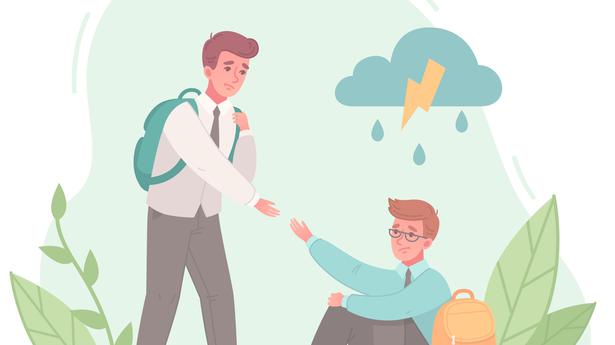
Why we need more empathetic ears
The Hindu
Developing empathy will make the world a richer place with many more listening ears available to all of us
Whether we are distraught, dejected or delighted, most of us benefit if we have an empathetic person to whom we can turn to; someone who listens without judging, berating, belittling or advising; someone who offers a kind ear to our peeves and dreams. Often, a sense of being listened to is all it takes for us to feel better. Unfortunately, finding a truly empathetic person can be difficult. Though family and friends love and support us in innumerable ways, these relationships can also be complex, layered, and fraught.
For example, 18-year-old Pritam shies away from telling her dad about her bike accident as his overprotectiveness is stifling. Nina would love to confess how her breakup is eating into her but feels that her best friend’s know-it-all attitude may be a turn-off. Nandan is itching to discuss a novel business idea but is diffident that his otherwise concerned boss may feel threatened by his ingenuity.
Of course, we may choose what we tell whom. Further, people may keep certain tidings to themselves, as finding the right person at an opportune time isn’t a cakewalk. But, if more of us practice empathy, the world will be a richer place with many more listening ears available to all of us.
The cultivation of empathy can have spill-over benefits. Ashley Abramson writes in an article posted on the website of the American Psychological Association that empathy promotes prosocial acts such as helping and forgiveness while reducing the incidence of aversive behaviours like bullying. Significantly, building a person’s empathy may also mitigate prejudice.
In a blog post on verywellmind.com, author and educational consultant Kendra Cherry writes that empathy involves understanding another person’s feelings and their perspective of a situation. To enhance your own empathy, she advocates honing your listening skills. Besides attending to nonverbal cues, listen without interrupting or silently rehearsing your response. Asking people questions about their views and lives may help you appreciate their unique context. Find similarities with others rather than emphasising your differences. Also, refrain from judging or advising, unless you are explicitly asked for an opinion.
In his bestselling book, Emotional Intelligence, psychologist Daniel Goleman argues that empathy rests on a bedrock of self-awareness. The more attuned we are to our emotions, the more adept we will be at recognising and responding to others. To raise empathic children, we need to model empathy by accepting all their feelings with a non-judgmental openness. If children are disciplined with an empathic focus, they grow more skilled at responding to another person’s distress. Children tend to exhibit more empathy when we emphasise how their misbehaviour or meanness impacts another. Seeking out new experiences helps us relate to others who have had similar encounters.
While we may desire a more empathetic world, Abramson cautions us that empathy can take a toll if it isn’t deployed adroitly. “Overidentifying” with another person’s pain can be taxing, both physically and psychologically. When another’s pain so overwhelms us that we are unable to function optimally, then empathy fails to play a conducive role. Those in caring professions, who encounter pain and suffering on a daily basis, have to shield themselves from emotional burnout. She also cites the work of psychologist Paul Bloom who avers that empathy may enhance groupism. As we are more likely to empathise and aid those who are similar to us, this can exacerbate, rather than diminish, group differences.

 Run 3 Space | Play Space Running Game
Run 3 Space | Play Space Running Game Traffic Jam 3D | Online Racing Game
Traffic Jam 3D | Online Racing Game Duck Hunt | Play Old Classic Game
Duck Hunt | Play Old Classic Game











